How opened the decade of the 1960's by continuing the dominating form her showed throughout the 1950's, as, following his 28 goal, 73 point season, Howe would be named the winner of the Hart Memorial Trophy as the league MVP for the fifth time overall and third time in four years.
During the 1960-61 season, Howe registered an assist in a 2-0 win over the Toronto Maple Leafs to score the 1,000th NHL point of his career on November 27th, 1960, becoming the first player in the 44 year history of the league to reach the 1000 point milestone, doing so in just his 938th game.
It would be another eight years before Jean Beliveau would become the second to reach 1,000 points and another 20 years before Howe would score his final point, keeping in mind that he already had 14 years in the league behind him at this stage, which would be a good career for the average player.
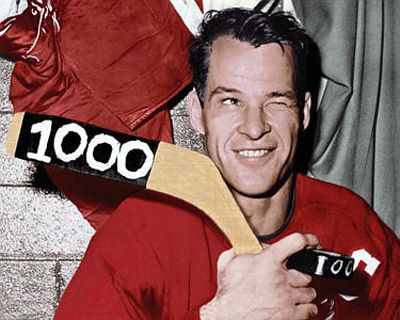
in NHL history to score 1000 points
On March 14th, 1962, Howe beat the New York Rangers Gump Worsely to become only the second player to ever reach 500 goals in the NHL.
Early in the 1963-64 season Howe would surpass Maurice "Rocket" Richard when he scored his 545th goal on November 10, 1963 to become the NHL's all-time goal scoring leader when he beat the Montreal Canadiens Charlie Hodge at the Detroit Olympia in front of his thrilled home fans.
At the conclusion of the 1962-63 season, Howe captured the Art Ross Trophy for the sixth time with a league high 86 points on his way to winning the Hart Trophy for the sixth time as well.
Howe would score his 600th NHL goal in a game versus the Montreal Canadiens, coincidentally on the same date he scored his 1000th point three seasons earlier, November 27th, becoming the first player in NHL history to record 600 goals. It would not be until 1972 that Bobby Hull would become the second to reach 600.
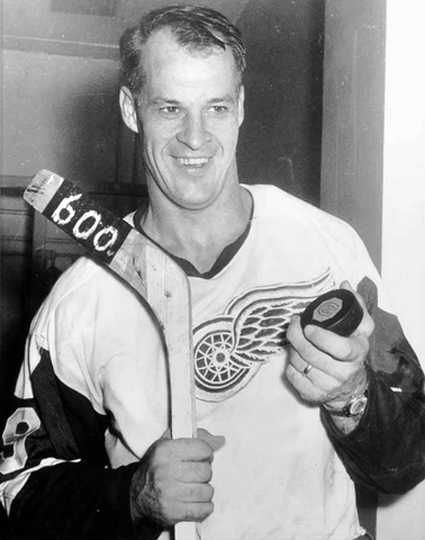
In 1968-69, aided by the recent NHL expansion to 12 teams which created a longer schedule of games against some admittedly weaker opponents, Howe achieved his one and only 100 point NHL season with 44 goals and 58 assists for 103 points. His 103 points that season placed Howe third overall in the league, extending his remarkable streak to 20 consecutive seasons of placing in the top five in overall scoring.
While his 71 points in 1969-70 were only good for ninth in the NHL, bringing his 20 year streak of top five placings to and end, it was still enough to lead the Red Wings in scoring, one ahead of Frank Mahovlich.
Similar to his remarkable record of durability in the 1950's, from 1959-60 to 1968-69, Howe would play in 696 of 704 games, including 7 seasons without missing a game.
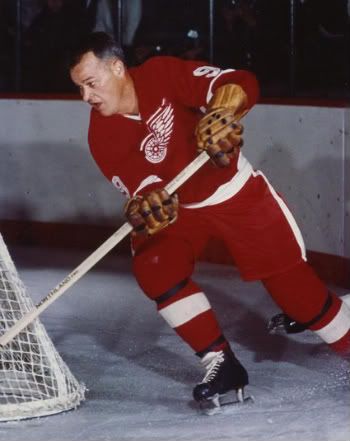
Howe would play one final season with Detroit in 1970-71, playing in 63 of 78 games, his lowest total since 1948-49 thanks to a chronic wrist problem. Additionally, Howe discovered he was just the third highest paid player on the team after his 103 point season, which led to a conflict with the team, but he did earn a more than 100% salary increase to to $100,000, but even that came at a price for his relationship with the organization when they blamed Howe's wife Collen Howe for the demand.
Additionally, the Red Wings missed the playoffs for the fourth time in five seasons as they had entered the era of the Dead Wings and would only make the playoffs just once over the next 12 years. Thanks mainly to his wrist problems, Howe would retire from the NHL following the 1970-71 season at the age of 43 and take a job with the Detroit front office.
At the time of his retirement, Howe led the NHL in Games Played, Career Goals, Career Assists and Career Points, having won the Hart Trophy 6 times, the Art Ross Trophy six times and the Stanley Cup four times. The Red Wings wasted little time retiring his #9 on March 12, 1972. Also that same year, Howe became only the sixth player to have the mandatory three year waiting period waived by the Selection Committee and was inducted into the Hockey Hall of Fame on June 7, 1972.
While Detroit's red sweater dates back to 1932, the Red Wings did not wear a white sweater until 1934 to wear in games against the Montreal Canadiens. The white sweaters were originally simply a reverse of the red sweaters - all white including white sleeves with red bands around the arms and waist - and did not get its contrasting red sleeves until 1961, making the Red Wings white jerseys, now unchanged for over 50 years old, the "new" one.
Bonus jersey: Today's bonus jersey is a 1970-71 Detroit Red Wings Gordie Howe jersey. 1970-71 would be Howe's final season with the Red Wings. This classic style has been used by the Red Wings essentially unchanged since 1932 when the Detroit franchise first adopted the name "Red Wings" after previously being known as the Falcons and the Cougars.
Only detail changes have occurred over the years as this sweater has endured to become a timeless classic.

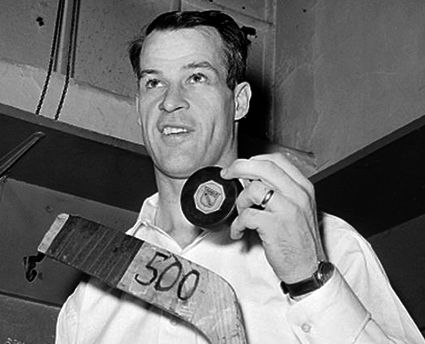
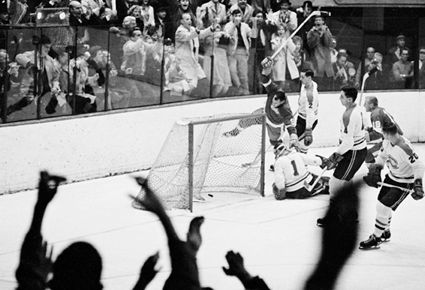
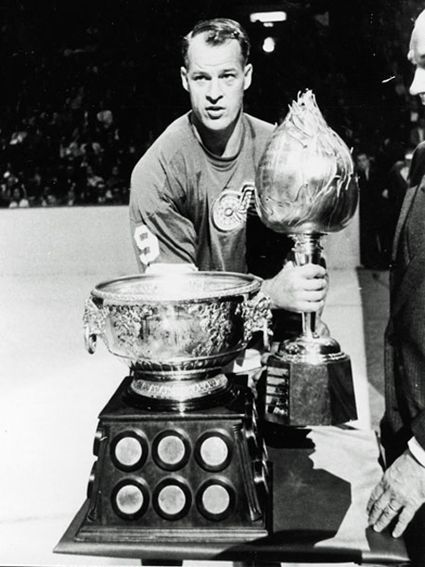
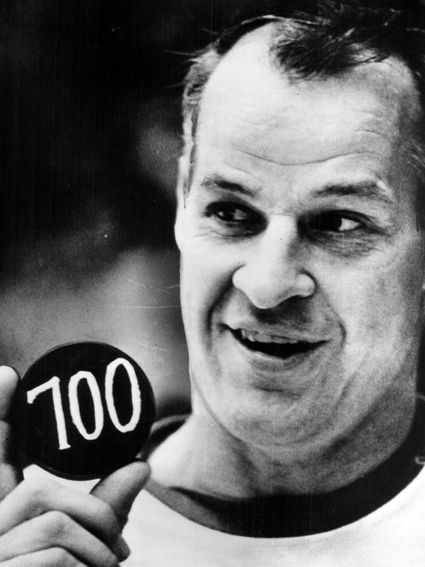
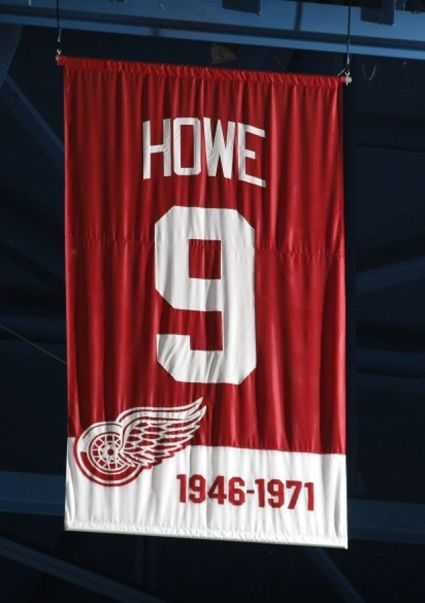
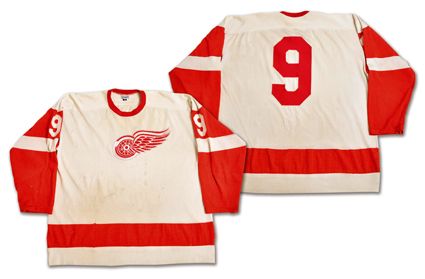
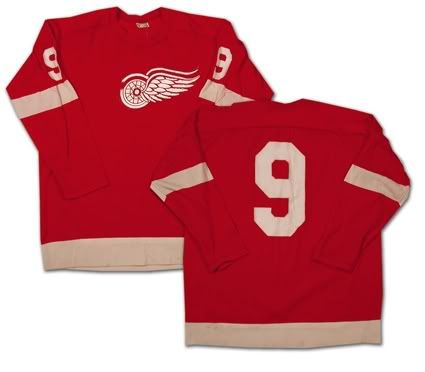










No comments:
Post a Comment
We welcome and encourage genuine comments and corrections from our readers. Please no spam. It will not be approved and never seen.